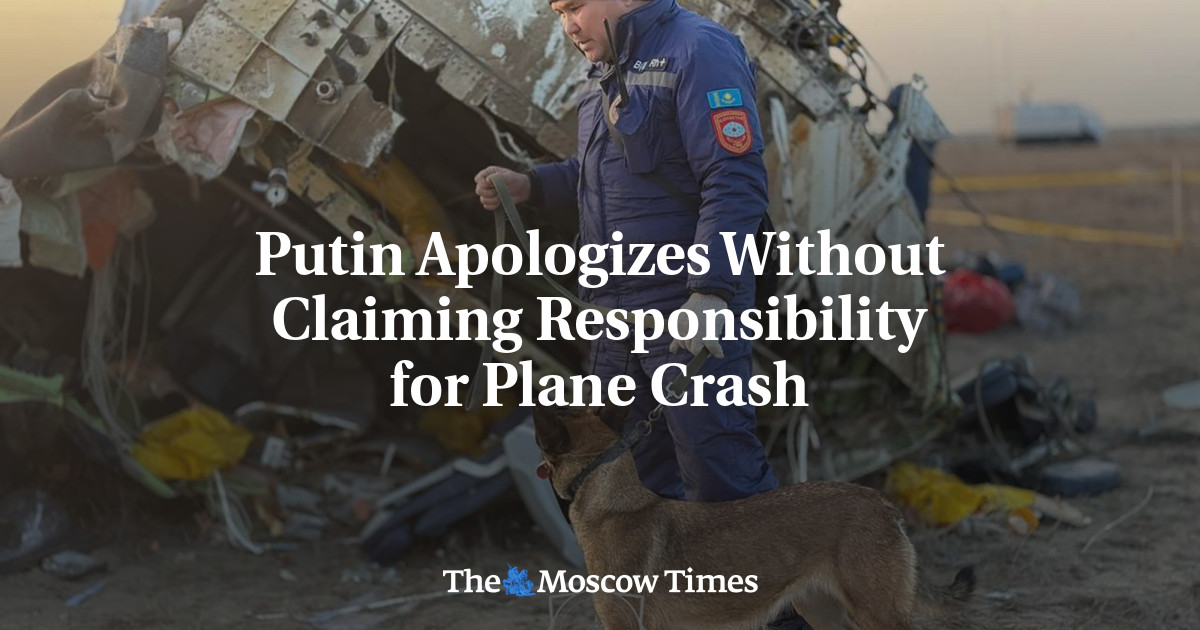U.S. journalist Evan Gershkovich, ex-U.S. Marine Paul Whelan, Russian-British opposition activist Vladimir Kara-Murza and U.S.-Russian journalist Alsu Kurmasheva were freed from Russian prison, the White House said Thursday, in the largest and most complex prisoner exchange between Russia and the West since the end of the Cold War.
The four were released in a swap involving over a dozen other journalists, dissidents and other political prisoners in Russia in exchange for Russians held in the West.
“The deal that secured their freedom was a feat of diplomacy. All told, we’ve negotiated the release of 16 people from Russia — including five Germans and seven Russian citizens who were political prisoners in their own country. Some of these women and men have been unjustly held for years. All have endured unimaginable suffering and uncertainty. Today, their agony is over,” the White House statement added.
A total of 24 prisoners were exchanged at an airport in the Turkish capital Ankara, The Wall Street Journal wrote.
“The prisoners are from the U.S., Germany, Poland, Slovenia, Norway, Russia and Belarus,” the BBC reported, citing the presidency of Turkey, which said it acted as a mediator in the swap.
Among those freed from Russia on Thursday are opposition activists Ilya Yashin and Andrei Pivovarov; Memorial co-founder Oleg Orlov; former Navalny coordinators Lilia Chanysheva, Ksenia Fadeyeva and Vadim Ostanin; artist Sasha Skochilenko; German-Russian activist Herman Moyzhes; and Kevin Lik, 19, a Russian-German citizen jailed for treason.
They were exchanged for a group of Russians held in the West, most notably Vadim Krasikov, a Russian citizen who is serving a life sentence in Germany for the 2019 killing of a former Chechen rebel commander in Berlin.
Speculation over an imminent prisoner exchange had been mounting in recent days as an increasing number of jailed dissidents were transferred to unknown locations.
Meanwhile, several Russians imprisoned in the U.S. on charges including cybercrime, money laundering and smuggling military-grade microelectronics disappeared from the Federal Bureau of Inmates database.
The exchange of Gershkovich, 32, a Wall Street Journal correspondent and former Moscow Times reporter, comes weeks after he was sentenced to 16 years in prison for espionage — charges that he, his employer and the U.S. strongly denied.
“We are overwhelmed with relief and elated for Evan and his family, as well as for the others who were released. At the same time, we condemn in the strongest terms Vladimir Putin’s regime in Russia, which orchestrated Evan’s 491-day wrongful imprisonment based on sham accusations and a fake trial as part of an all-out assault on the free press and truth,” Dow Jones CEO and Wall Street Journal publisher Almar Latour and Wall Street Journal Editor in Chief Emma Tucker said in a statement.
Moscow had not shared any evidence for the espionage charges against Gershkovich, only stating that "the court established and documented" that he "collected secret information" on a tank factory in the Ural Mountains region of Sverdlovsk "on instructions from the CIA."
Whelan, 54, had been serving a 16-year sentence on espionage charges since 2020, a charge the U.S. government said was without merit. The former U.S. Marine, who also holds British, Irish and Canadian passports, had been working in security for a U.S. vehicle parts company when he was arrested in Moscow in 2018.
Russia reportedly refused to release Whelan along with U.S. basketball star Brittney Griner in 2022. U.S. President Joe Biden stated at the time that Russia was treating Whelan's case differently "for totally illegitimate reasons."
The U.S. government had declared both Gershkovich and Whelan to be “wrongfully detained,” meaning it effectively regarded them as political hostages.
The two were among several Americans held in Russia in what observers say is part of a strategy of arresting U.S. citizens on baseless charges to use them as bargaining chips to secure the release of Russians imprisoned abroad.
Vladimir Kara-Murza
Kara-Murza, 42, an opposition politician and journalist, was serving a 25-year prison sentence for treason and other charges for his criticism of Russia's invasion of Ukraine and calls to Western countries to impose sanctions against the Kremlin.
His family and supporters have raised alarm over his health, which is said to have deteriorated in prison due to a nerve condition he sustained after surviving two poisoning attempts in the 2010s. The dual Russian-British national was hospitalized earlier this month.
Bill Browder, who worked with Kara-Murza to lobby the U.S. to pass the Magnitsky Act, welcomed his release in a statement to The Moscow Times.
"Vladimir publicly protested Putin’s war of aggression against Ukraine and Putin’s repressive dictatorship. For that he was arrested, given the longest sentence of any political prisoner of 25 years, and subjected to torture, denial of medical care, solitary confinement and other inhumane conditions to try to break his health and his spirit," Browder said.
"Throughout this entire ordeal Vladimir has held his head high, his spirits strong and has never wavered in his conviction that Russia could be a free country. Vladimir’s fight has set an extraordinary example for millions of Russians who wish for the Putin regime to fall and for a peaceful and democratic regime in their country."
Sasha Skochilenko
St. Petersburg artist Sasha Skochilenko, 33, was sentenced in 2023 to seven years in prison on charges of spreading “fake news” about the Russian Armed Forces after she replaced six supermarket price tags with similar tags displaying information about the war in Ukraine and civilian deaths in the besieged Ukrainian city of Mariupol.
Skochilenko’s trial was one of the longest prosecutions carried out under the “military fakes” law, which was passed shortly after the full-scale invasion of Ukraine.
"I expected nothing, and it was a complete surprise to me. At first, Sasha was taken somewhere, and we searched for her for two days. We were in a panic — we were afraid, for example, of a new criminal case or something else," Skochilenko's mother Nadezhda told The Moscow Times. "The exchange seemed so unreal. We couldn’t even imagine it and were very worried for the first two days."
"When we realized that an exchange was likely, we still worried because an exchange is a very serious undertaking. I immediately calculated how many risks there could be. Moreover, agreements might not be fulfilled, and something could go wrong.
"Tomorrow we are flying to Germany — I don’t know what awaits us when we arrive, whether we will be able to see Sasha immediately or if we will have to wait longer. But today — it cannot be compared to any other in terms of happiness; I have never had a day like this.
"Sasha is an ordinary citizen. In the exchange, we have such wonderful people who are real heroes of Russia, so to speak, like Orlov and Yashin. I don’t consider Sasha to be any less. I believe she is one of them because speaking about peace and love in a country at war is very commendable."
This story is being updated.
 (1).png)
 4 months ago
44
4 months ago
44













